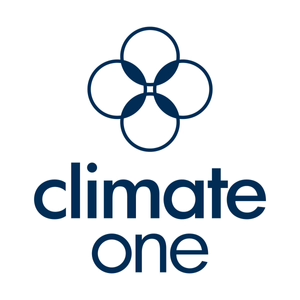
Bridging Occupational Safety Across Borders
07/23/24 • 55 min
Workplace safety isn’t just a priority, it's a fundamental requirement. As occupational risks evolve, how can we ensure that our safety practices not only comply with regulatory requirements but also cultivate a safety culture across industries?
This episode features interviews with experts Alizabeth Aramowicz Smith, Senior EHS Consultant at Antea Group USA; Bruno Zapata, Senior EHS Consultant at Tonkin + Taylor; and Sofiane Kessouar, Senior EHS Consultant at Baden Consulting. Together, they discuss the multifaceted landscape of occupational health, spanning regions and industries. They dive into global differences, the influence of local cultures on safety structures, and innovative solutions to mitigate workplace risks today. They emphasize the importance of fostering a strong safety culture, continuous learning, and proactive strategies to foster safer workplaces for all.
---------
Guest Quotes
“Some companies want to quickly resolve a case, or they want to quickly close something, but you need to use that as an opportunity. You need to engage with the stakeholders and you need to try to understand, “Okay, what is actually the root cause of this event, so I can prevent this?” - Bruno Zapata
“I think we're in a continual state of learning, and humans and the workplace are constantly evolving. As we change and evolve, the risks are changing and evolving too.” - Alizabeth Aramowicz Smith
“So, the local perspective serves to underline the fact that the corporate culture does not automatically apply in a standard way in all locations. And that integration needs to be achieved by means of employees on the ground or local consultants who can analyze the specific needs on site and then remedy these problems in an appropriate way.” - Sofiane Kessouar
---------
Time Stamps
*(03:11) Defining occupational health: US vs. global perspectives
*(10:55) Impact of regulations
*(14:15) Workplace cultural influences on safety practices
*(17:59) Challenges of prescriptive regulations
*(27:12) Learning from near misses
*(31:02) How occupational health efforts differ across industries
*(46:22) Advice to occupational health leaders
*(49:31) Sofiane Kessouar on COVID-19’s impact on work habits
*(53:13) Phil’s takeaways
---------
Sponsor copy
Rethinking EHS is brought to you by the Inogen Alliance. Inogen Alliance is a global network of environment, health, safety, sustainability and ESG consulting companies working together to provide one point of contact to guide multinational organizations to meet their global commitments locally. Visit http://www.inogenalliance.com/ to learn more.
---------
Links
Workplace safety isn’t just a priority, it's a fundamental requirement. As occupational risks evolve, how can we ensure that our safety practices not only comply with regulatory requirements but also cultivate a safety culture across industries?
This episode features interviews with experts Alizabeth Aramowicz Smith, Senior EHS Consultant at Antea Group USA; Bruno Zapata, Senior EHS Consultant at Tonkin + Taylor; and Sofiane Kessouar, Senior EHS Consultant at Baden Consulting. Together, they discuss the multifaceted landscape of occupational health, spanning regions and industries. They dive into global differences, the influence of local cultures on safety structures, and innovative solutions to mitigate workplace risks today. They emphasize the importance of fostering a strong safety culture, continuous learning, and proactive strategies to foster safer workplaces for all.
---------
Guest Quotes
“Some companies want to quickly resolve a case, or they want to quickly close something, but you need to use that as an opportunity. You need to engage with the stakeholders and you need to try to understand, “Okay, what is actually the root cause of this event, so I can prevent this?” - Bruno Zapata
“I think we're in a continual state of learning, and humans and the workplace are constantly evolving. As we change and evolve, the risks are changing and evolving too.” - Alizabeth Aramowicz Smith
“So, the local perspective serves to underline the fact that the corporate culture does not automatically apply in a standard way in all locations. And that integration needs to be achieved by means of employees on the ground or local consultants who can analyze the specific needs on site and then remedy these problems in an appropriate way.” - Sofiane Kessouar
---------
Time Stamps
*(03:11) Defining occupational health: US vs. global perspectives
*(10:55) Impact of regulations
*(14:15) Workplace cultural influences on safety practices
*(17:59) Challenges of prescriptive regulations
*(27:12) Learning from near misses
*(31:02) How occupational health efforts differ across industries
*(46:22) Advice to occupational health leaders
*(49:31) Sofiane Kessouar on COVID-19’s impact on work habits
*(53:13) Phil’s takeaways
---------
Sponsor copy
Rethinking EHS is brought to you by the Inogen Alliance. Inogen Alliance is a global network of environment, health, safety, sustainability and ESG consulting companies working together to provide one point of contact to guide multinational organizations to meet their global commitments locally. Visit http://www.inogenalliance.com/ to learn more.
---------
Links
Previous Episode

Rising Above the Floods: Stories from Flood-Affected Communities
Flooding, one of the most dangerous natural disasters, is becoming increasingly prevalent due to climate change. Millions of people around the world are impacted by floods and the effects stretch far beyond the physical destruction.
This episode features interviews with experts Andreas Deckelmann, Senior Consultant for Hydrogeology and Environment at HPC; Jon Rix, Principal Flood Risk Consultant at Tonkin + Taylor; and Agenor Freitas, Field Technician at Antea Brasil. They share their harrowing experiences during devastating floods in Germany, New Zealand, and Brazil. They also discuss the innovative solutions and strategies they are developing to help communities mitigate the effects of disasters like floods. Despite adversity, their stories of courage and community support offer not only hope and inspiration, but also invaluable insights for a more climate-resilient future.
---------
Guest Quotes
“I think the huge growth there is how can we be ready for the next events? What were the lessons from what we've experienced, and how can we more efficiently respond to the future events, which we know are coming? Because they're going to be getting more frequent.” - Jon Rix
“The knowledge of the local people and conducting interviews, for example, in a case of a flooding event, sometimes oral information is really important. Information by a local inhabitant of a municipality about perhaps the former drainage channel can be as valuable or even more valuable as any kind of planning information.” - Andreas Deckelmann
“Well, I think no matter how insensitive people can be, if they don't feel something after what happened in the region, well, I'm sorry, but they have no heart. Because it had such a big impact on me. To this day, I still have nightmares about it.” - Agenor Freitas
---------
Time Stamps
*(00:00) Episode Start
*(01:45) Andreas Deckelmann on flooding in Germany
*(06:35) Disaster preparedness in Germany
*(09:20) HPC’s role in climate resilience
*(12:46) Jon Rix on flooding in New Zealand
*(21:19) Emotional impact of natural disasters
*(22:52) Tonkin + Taylor’s climate resilience efforts
*(26:35) Agenor Freitas on flooding in Brazil
*(29:38) Reflections on impacted communities
*(30:37) Phil’s takeaways
---------
Sponsor copy
Rethinking EHS is brought to you by the Inogen Alliance. Inogen Alliance is a global network of environment, health, safety, sustainability and ESG consulting companies working together to provide one point of contact to guide multinational organizations to meet their global commitments locally. Visit http://www.inogenalliance.com/ to learn more.
---------
Links
Explore Inogen Alliance's resources
Check out the BBC’s article 'How to protect communities and build resilience to natural disasters'
Next Episode

Addressing the Global PFAS Challenge
PFAS, man-made chemicals resistant to water, grease and stains, have made headlines in recent years, as concerns over their impacts on human health, animals and environments, have grown.
In this episode, we hear from PFAS experts, Jack Sheldon, a Senior Remediation Specialist with Antea Group USA, Lucie Robin Vigneron, Managing Director of HPC International and Jolanda Boisson, a Project Manager at Antea Group France, on the global landscape and the complexities of addressing PFAS.
They dive into the significant risks posed by PFAS and the regulatory challenges that companies face, emphasizing the need to take proactive action now.
---------
Guest Quotes
“I think it's really important to control the narrative and build that rapport with the regulator.Don't make the relationship adversarial from the start. Create a partnership with the regulatory environment, and you can drive the action then as a business, as opposed to waiting for the regulators to drive the action, which could be much more expensive, could come with a lot of other implications, and could have brand impacts.” - Jack Sheldon
“We hear more and more about the ban of PFAS. Now, for example, in France, there was a proposition for a law to ban PFAS in clothing and textiles. But, then all the textile industry,they will probably have to change their process of producing textile, or they will have to find substitutes for the PFAS. So, this also has a lot of costs for the industries.” - Jolanda Boisson
“Why it's important because it's already spread in the environment and we know already they are largely present and mixed. For example, there are some places in France, in the region of Lyon, where we already have a large contamination. This is already impacting every environment, including houses, gardens, animals and people.” - Lucie Robin Vigneron
---------
Time Stamps
00:00 Introduction to PFAS and their impact
01:23 Introduction to PFAS experts / start of panel conversation
02:37 Understanding PFAS chemical properties and concerns
04:20 PFAS in consumer products and environmental impact
13:44 Why leaders need to be aware of PFAS and global regulation
23:04 Regional differences in PFAS regulation
37:01 Advice for addressing PFAS issues
42:59 Phil’s key takeaways
---------
Sponsor copy
Rethinking EHS is brought to you by the Inogen Alliance. Inogen Alliance is a global network of environment, health, safety, sustainability and ESG consulting companies working together to provide one point of contact to guide multinational organizations to meet their global commitments locally. Visit http://www.inogenalliance.com/ to learn more.
---------
Links
If you like this episode you’ll love
Episode Comments
Generate a badge
Get a badge for your website that links back to this episode
<a href="https://goodpods.com/podcasts/rethinking-ehs-global-goals-local-delivery-501734/bridging-occupational-safety-across-borders-66174196"> <img src="https://storage.googleapis.com/goodpods-images-bucket/badges/generic-badge-1.svg" alt="listen to bridging occupational safety across borders on goodpods" style="width: 225px" /> </a>
Copy




